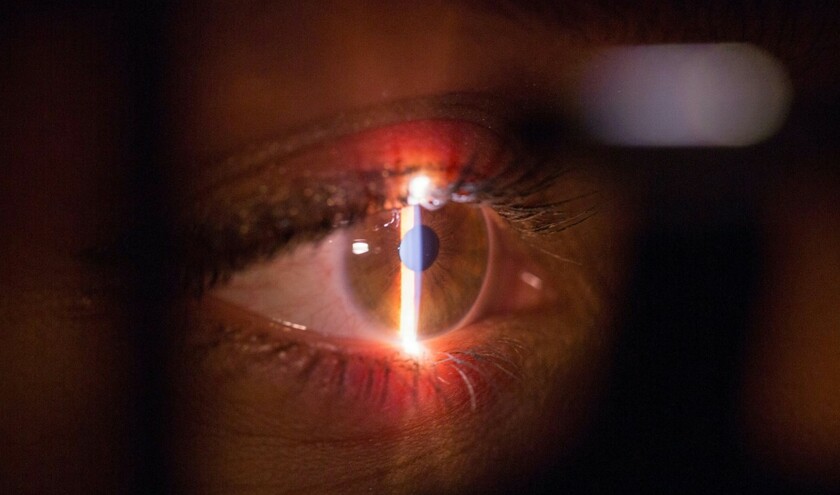The research - led by scientists at City St George's, University of London - shows an artificial intelligence (AI) tool has identified differences in the shape and size of blood vessels at the back of the eye that correspond to cognitive health.
The study, funded by Alzheimer's Research UK, could open the door to a new diagnostic tool that experts say could complement existing tests to ensure people get the help they need more quickly.
The AI tool, called Quartz, can analyse eye scans in seconds, identifying key differences in the shape and size of tiny blood vessels in the retina. These blood vessels in the eye serve as an extension of those in the brain, providing a non-invasive window into brain health.
Using Quartz, researchers at City St George's scanned the eyes of more than 63,000 people aged 40-69-years-old. They then compared the images with cognitive test scores measuring memory, reaction time and intelligence.
The researchers found that those with retinal blood vessels that had reduced width and had particular patterns of twisting were linked to lower scores in tests for memory, reaction time and intelligence.
Scientists believe changes in retinal blood vessels may be due to reduced blood supply in the brain, which in turn may be an early cause or consequence of diseases such as Alzheimer's.
Prof Chris Owen, lead author of the study, said the technique could one day be ‘seamlessly embedded' into the daily routines of high street opticians and eye clinics.
He said: ‘It would provide an easily accessible, low cost and quick way to flag people who are at risk of developing neurodegenerative conditions in the future without the need of invasive tests.'
Prof Owen plans to use Quartz in other studies and populations to see how it could be used more widely in the healthcare sector.



